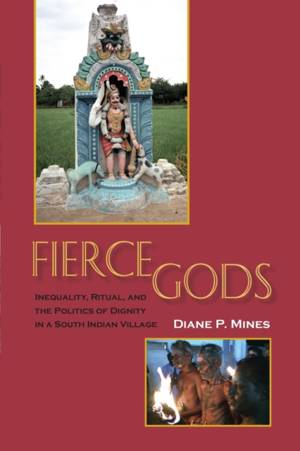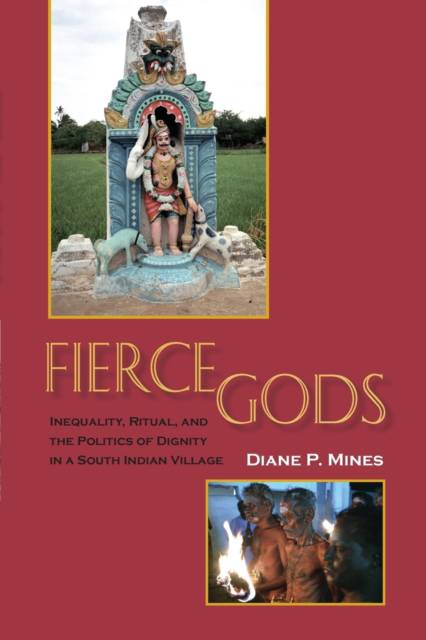
- Afhalen na 1 uur in een winkel met voorraad
- Gratis thuislevering in België vanaf € 30
- Ruim aanbod met 7 miljoen producten
- Afhalen na 1 uur in een winkel met voorraad
- Gratis thuislevering in België vanaf € 30
- Ruim aanbod met 7 miljoen producten
Fierce Gods
Inequality, Ritual, and the Politics of Dignity in a South Indian Village
Diane P MinesOmschrijving
"In a move still unusual in anthropology, Mines examines relations of power by providing perspectives from a variety of people who are differently, and differentially, empowered. . . . These points are made with an extraordinary richness of ethnographic detail." --Sara Dickey
"With the publication of books of this quality the anthropological turn to practice theory announced in 1968 by Sherry Ortner comes to maturity. Intelligent, clear, humane and often gripping, this book will be of interest to readers who care about place and politics in the United States as well as those interested in South Asia."
-- Anthony Carter, Deparment of Anthropology, University of Rochester
The importance of temple ritual in constituting political dominance in South India has been well documented. In this vivid and compelling study of caste and ritual in rural Tamilnadu, Diane P. Mines focuses not only on the temples of the socially powerful, but even more so on the powerful temples of the socially weak. Drawing on phenomenological and existential anthropology, she argues that the village is a heterogeneous reality made and remade by its residents through their own activity. Exploring the intersection of politics, ritual, caste, and other forms of social inequality, this ethnography presents a new view of the village and argues for its reemergence as a unit of analysis.
Specificaties
Betrokkenen
- Auteur(s):
- Uitgeverij:
Inhoud
- Aantal bladzijden:
- 272
- Taal:
- Engels
Eigenschappen
- Productcode (EAN):
- 9780253217653
- Verschijningsdatum:
- 1/07/2005
- Uitvoering:
- Paperback
- Formaat:
- Trade paperback (VS)
- Afmetingen:
- 164 mm x 230 mm
- Gewicht:
- 476 g

Alleen bij Standaard Boekhandel
Beoordelingen
We publiceren alleen reviews die voldoen aan de voorwaarden voor reviews. Bekijk onze voorwaarden voor reviews.











